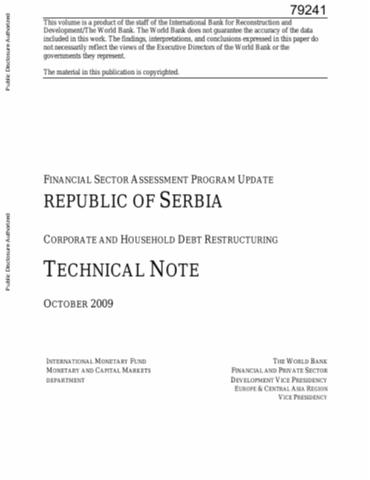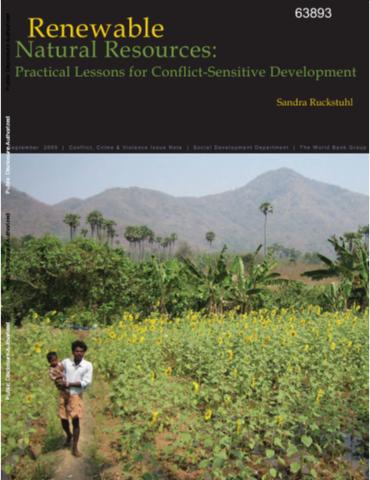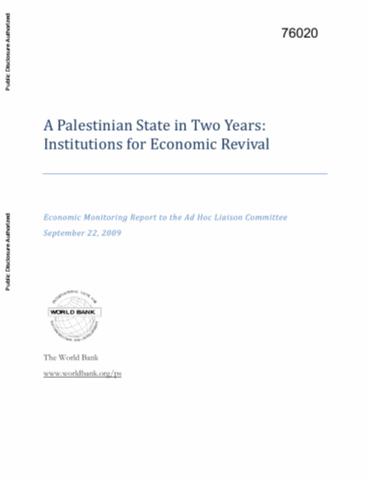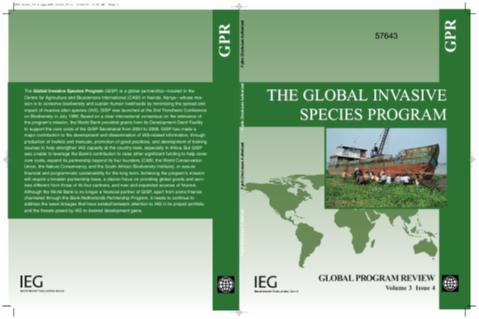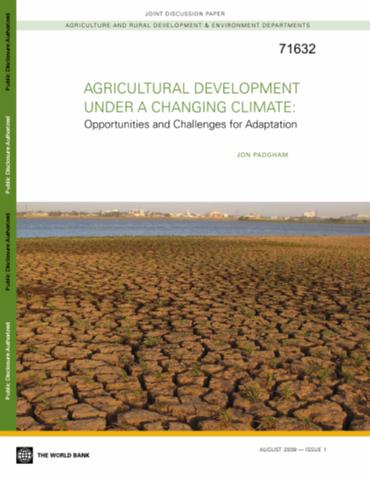The World Bank is a vital source of financial and technical assistance to developing countries around the world. We are not a bank in the ordinary sense but a unique partnership to reduce poverty and support development. The World Bank Group has two ambitious goals: End extreme poverty within a generation and boost shared prosperity.
- To end extreme poverty, the Bank's goal is to decrease the percentage of people living on less than $1.25 a day to no more than 3% by 2030.
- To promote shared prosperity, the goal is to promote income growth of the bottom 40% of the population in each country.
The World Bank Group comprises five institutions managed by their member countries.
The World Bank Group and Land: Working to protect the rights of existing land users and to help secure benefits for smallholder farmers
The World Bank (IBRD and IDA) interacts primarily with governments to increase agricultural productivity, strengthen land tenure policies and improve land governance. More than 90% of the World Bank’s agriculture portfolio focuses on the productivity and access to markets by small holder farmers. Ten percent of our projects focus on the governance of land tenure.
Similarly, investments by the International Finance Corporation (IFC), the World Bank Group’s private sector arm, including those in larger scale enterprises, overwhelmingly support smallholder farmers through improved access to finance, inputs and markets, and as direct suppliers. IFC invests in environmentally and socially sustainable private enterprises in all parts of the value chain (inputs such as irrigation and fertilizers, primary production, processing, transport and storage, traders, and risk management facilities including weather/crop insurance, warehouse financing, etc
For more information, visit the World Bank Group and land and food security (https://www.worldbank.org/en/topic/agriculture/brief/land-and-food-security1
Resources
Displaying 4706 - 4710 of 4907Republic of Serbia Financial Sector Assessment Program Update
Nonperforming Loans (NPLs) in the banking system constituted 16.5 percent of total loans, owing primarily to the corporate sector. The Credit Bureau, maintained by the Association of Serbian Banks, also discloses dramatic increases in corporate and retail defaults over the past year. NPL resolution and loan loss mitigation is hampered by a still evolving but uneven collateral and enforcement framework that complicates restructuring and leads to delays and lower recoveries in execution procedures.
Renewable Natural Resources
This paper explores how a 'conflict and violence sensitive' framework in project assessment, design and implementation facilitates early identification and mitigation of negative consequences of competition and dispute, and promotes sustainable development over the longer term. It discusses the role of renewable resources in perpetuating conflict and violence, and distills lessons from selected development programming experiences in managing conflict risks associated with these dynamics.
A Palestinian State in Two Years
On August 25, 2009, the 13th Government of the Palestinian Authority (PA) presented a program entitled "Palestine: ending the occupation, establishing the state" (hereafter referred to as the program) outlining several national goals, including the achievement of 'economic independence and national prosperity'. The program accords high priority to the development of the public institutions of the PA in order to achieve the stated national goals.
The Global Invasive Species Program
The Global Invasive Species Program (GISP) is an independent, not-for-profit association whose mission is to conserve biodiversity and sustain human livelihoods by minimizing the spread and impact of invasive alien species (IAS) and which is presently located in the Centre for Agriculture and Biosciences International (CABI) in Nairobi, Kenya. Its current membership is limited to the four founding members of GISP.
Agricultural Development under a Changing Climate
Climate change presents a profound challenge to food security and development. Negative impacts from climate change are likely to be greatest in regions that are currently food insecure and may even be significant in those regions that have made large gains in reducing food insecurity over the past half-century. Adaptation in the agricultural sector is being given a high priority within this effort because of the inherent sensitivity of food production to climate and the strong inter-linkages that exist between climate, agriculture, and economic growth and development.






